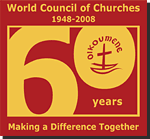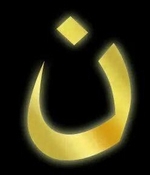G
a warm welcome to this web site.
 This website aims to give an overview of Christian faith and practice. Included are sections on the three main Christian traditions (Orthodox , Protestant and Roman Catholic), together with a comparison of the teaching of each tradition.
This website aims to give an overview of Christian faith and practice. Included are sections on the three main Christian traditions (Orthodox , Protestant and Roman Catholic), together with a comparison of the teaching of each tradition.
 Also available is a Q and A page, containing answers to some common questions about the Christian faith, a new discussion forum and a page with downloadable resources.
Also available is a Q and A page, containing answers to some common questions about the Christian faith, a new discussion forum and a page with downloadable resources.
 We have a world map, with detailed numbers and percentages of Christians by country.
We have a world map, with detailed numbers and percentages of Christians by country.
 Statistics on the Christian Faith:
Statistics on the Christian Faith:
- There are approximately 2.2 billion Christians worldwide (making up about 31% of the total world population).
- Of these, 1,166 million are Roman Catholic, 312 million are Orthodox, 617 million are Protestant and 80 million belong to non-denominational churches.
- About 90% of the population of Poland consists of baptized Roman Catholics.
- 90% of the population of Iceland is Lutheran.
- There are at least 70 million Orthodox Christians in Russia.
- The largest Christian population in the world is found in the USA, where there are about 240 million (78% of the population).
NOTES:
1. 'Protestant' in this context includes the Anglican churches, but excludes groups such as the Church of Jesus Christ of Latter Day Saints (commonly called 'Mormons') and Jehovah's Witnesses.
2. 'Orthodox' includes both the Eastern and Oriental Orthodox Churches.
3. All statistics shown are taken from the adherents.com web site and Wikipedia and are approximate estimates.
4. A list of the top ten countries by Christian population together with a breakdown of the number of Christians by continent (2010 estimates), is shown separately on this web site.
NOTES:
1. 'Agnostic/Atheist' in this context also includes 'Secular' and Non-religious' groups.
2. 'Others' includes groups such as Scientology (0.5 million), Rastafarianism (0.7 million) and Unitarian Universalism (0.63 million).
3. 'Chinese Traditional' includes groups such as Taoism and Confucianism.
4. 'Folk Religions' includes Animism and Shamanism.
NOTES:
1. Figures are taken from the Wikipedia website as of 2015: Christian Denominations
2. Where a range of estimates is given for a particular denomination, an average has been taken of the lowest and highest estimate.
3. 'Other Protestant' includes amongst others, Anabaptist Churches such as the Amish (3.5 Million), Quakers (0.4 Million) and the various Chinese independent Churches (10 Million).
4. Of the world total of 1,166 Billion Catholics, 17 million belong to 'Eastern-Rite' churches.
Mouse over each dot for the figures for each year.
Detailed figures are available at the Our Christian World and Pew Forum web sites.
 12 Steps in Establishing the Case for Christianity :
12 Steps in Establishing the Case for Christianity :
In his work, Encyclopedia of Christian Apologetics, the writer Norman Geisler sets forth a twelve step process in arguing the case for Christianity:
12 Steps
1. Truth about reality is knowable.
2. The opposite of true is false.
3. It is true that the theistic God exists.
4. If God exists then miracles are possible.
5. Miracles can be used to confirm a message from God.
6. The New Testament is historically reliable.
7. The New Testament says Jesus claimed to be God.
8. Jesus' claim to be God was miraculously confirmed by:
(a) His fulfillment of many prophecies about Himself; (b) His sinless and miraculous life; (c) His prediction and accomplishment of His resurrection.
9. Therefore, Jesus is God.
10. Whatever Jesus (who is God) teaches is true.
11. Jesus taught that the Bible is absolute Word of God.
12. Therefore, it is true that the Bible is the Word of God (and anything opposed to it is false).
 The Prayer of St. Francis of Assisi (c. 1181-1226):
The Prayer of St. Francis of Assisi (c. 1181-1226):
Make me a Instrument of Your Peace
Lord, make me an instrument of your peace,
Where there is hatred, let me sow love;
Where there is injury, pardon;
Where there is doubt, faith;
Where there is despair, hope;
Where there is darkness, light;
Where there is sadness, joy;
O Divine Master, grant that I may not so much seek to be consoled
as to console;
To be understood as to understand;
To be loved as to love.
For it is in giving that we receive;
It is in pardoning that we are pardoned;
And it is in dying that we are born to eternal life.
St. Francis (c. 1181-1226) is one of the most popular Christian figures in history. The son of a wealthy cloth merchant in Assisi, Italy; Francis found himself increasingly drawn to life of prayer, reflection and caring for the poor. in 1208 he began to preach and soon gathered a group of followers around him. in 1223, Francis won papal approval for the establishment of a new order, named after himself. In 1224, he underwent a profound mystical experience which culminated in him allegedly receiving the wounds of Christ or stigmata on his body. He died in 1226 and was canonized as a saint two years later by Pope Gregory IX.
This website has a page devoted to additional Christian Prayers.
 Exploring Christianity:
Exploring Christianity:
Christianity is, first and foremost, about the person of Christ - his life, his work and his message. If you are starting to investigate the Christian faith, please visit the Father's love letter page, which through a series of Bible verses aims to explain God's will for men and women.
The Christian faith is summarised in the form of creeds or statements of belief. Historic Christianity asserts that:
- There is only one God (Deuteronomy 6:4), whose attributes include Omnipresence (Psalm 139:7-12, Jeremiah 23:23), Omniscience (Psalm 139:1-5), Omnipotence (Jeremiah 32:17), Immortality and Invisibility (1 Timothy 1:17). The same God transcends the universe (Psalm 113:5-6)
- God exists in three distinct persons: Father, Son and Holy Spirit; all forming part of One 'essence' or Godhead. Christians call this the Trinity.
- Men and Women are by nature sinful human beings, whose sin alienates them from God (Romans 3:23).
- Jesus Christ, the second person of the Trinity, came to earth, adding a human nature to the divine nature he already possessed (Known as the Hypostatic Union of natures - Christ was both fully human and fully divine). His death and resurrection were made as an offering to God the father, so that men and women may be judged righteous in his sight. (2 Corinthians 5:21, Philippians 2:5-11).
- The Holy Spirit is the third person of the trinity having the attribute of deity (Acts 5:3-4). The spirit guides Christians into all the truth (John 16:13), indwells them (Romans 8:9-11) and intercedes for them (Romans 8:26-27).
- The Bible is the inspired word of God, without error of any kind (2 Timothy 3:16).
- True followers of the faith are promised eternal life (1 Corinthians 15:51-58, John 17:3).
The Christian worldview is compared to other belief systems such as Atheism and Deism by means of a flowchart.
Many churches around the world provide the Alpha
course for those wanting to explore Christian belief. For information on joining the Roman Catholic or Orthodox churches, please visit the Beginning Catholic or St Mary's Orthodox Church pages respectively.
If you are based in the UK and Ireland, you can also write to the following
address to make contact with a local Christian:
3 REASONS, FREEPOST WC2947, SOUTH CROYDON, CR2 8UZ.
May God bless you as you read these pages.
Iain

The Nativity, by Gerard van Honthorst (1590-1656).







